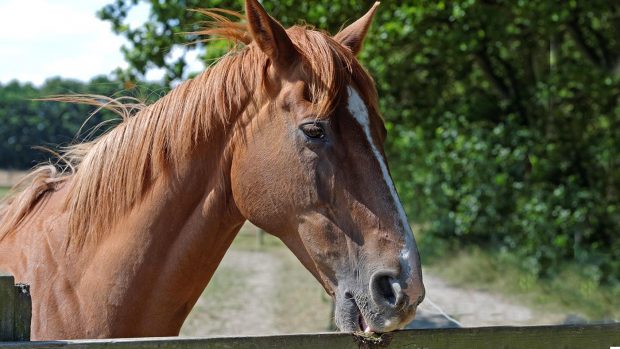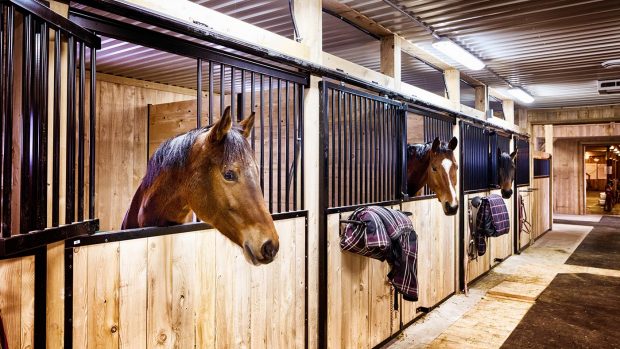Owners have been urged to be vigilant for signs of impaction colic as the cold weather hits Britain.
As most of the UK is covered by a yellow warning for snow, and temperatures last night were the lowest of the winter so far in many places, vets have warned owners of the possible consequences for horses.
Katie Snalune, director and head of hospital at Newnham Court Equine in Kent, said every year, the practice sees an increase in cases of impaction colic in horses when bad weather sets in.
She told H&H this is mainly owing to changes in management; many horses who are normally turned out are brought in, so are moving less, and eating more dried forage than grass. Frozen troughs, or even horses’ dislike for very cold water, can also mean they drink less, all of which are risk factors for large colon impaction.
The practice issued a warning on its Facebook page to alert owners to the risks.
“We try to pre-empt the bad weather, and warn people before it comes,” Ms Snalune said.
She added that even if horses are kept turned out, they may not move as much as normal. Owners should attempt to give horses exercise if at all possible, as if the horse is moving, the gut moves back and forward in the abdominal cavity, which helps promote the movement of food through the system.
Even horses in fields may not drink as much as normal, so Ms Snalune urged owners to ensure troughs are free from ice, and to add hot water to them, and to stabled horses’ buckets and feed if possible to encourage drinking and increase intake.
“I sometimes find adding salt – a tablespoon each of table salt and low salt (potassium chloride) to morning and evening feeds – helps encourage them to drink. But even if you can’t get them to drink more, do try to get them moving,” she said, adding that this can be a challenge if roads and schools are frozen, but “if you can do some exercise, this will help keep things moving”.
Continues below…

Is your stable yard ready for snow?
With snow forecast for some parts of the UK later this week, Lottie Butler finds out how to get prepared

16 things that only people with horses know about snow

Subscribe to Horse & Hound magazine today – and enjoy unlimited website access all year round
Owners should be vigilant for early warning signs of impactions, such as dry, hard droppings and fewer droppings than is normal for a horse, if it is eating normal amounts. Horses with impactions often show only mild symptoms, such as lying down more than normal and occasional flank-watching.
“It’s always better to try to prevent these things than deal with them afterwards, and a horse who’s had an impaction will be more prone to them in future,” Ms Snalune said, adding that owners who notice these early warning signs should consider calling the vet.
For all the latest news analysis, competition reports, interviews, features and much more, don’t miss Horse & Hound magazine, on sale every Thursday.





